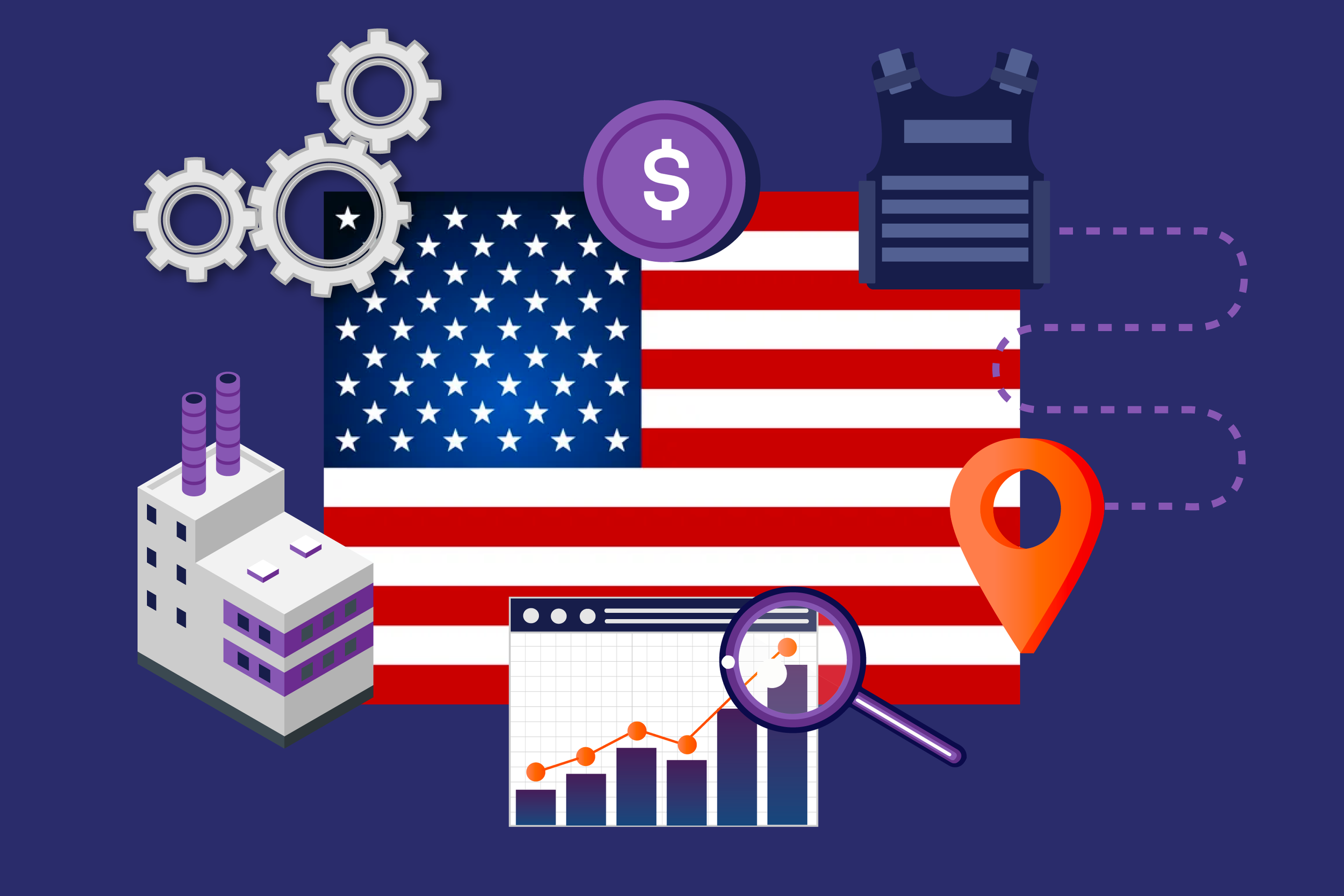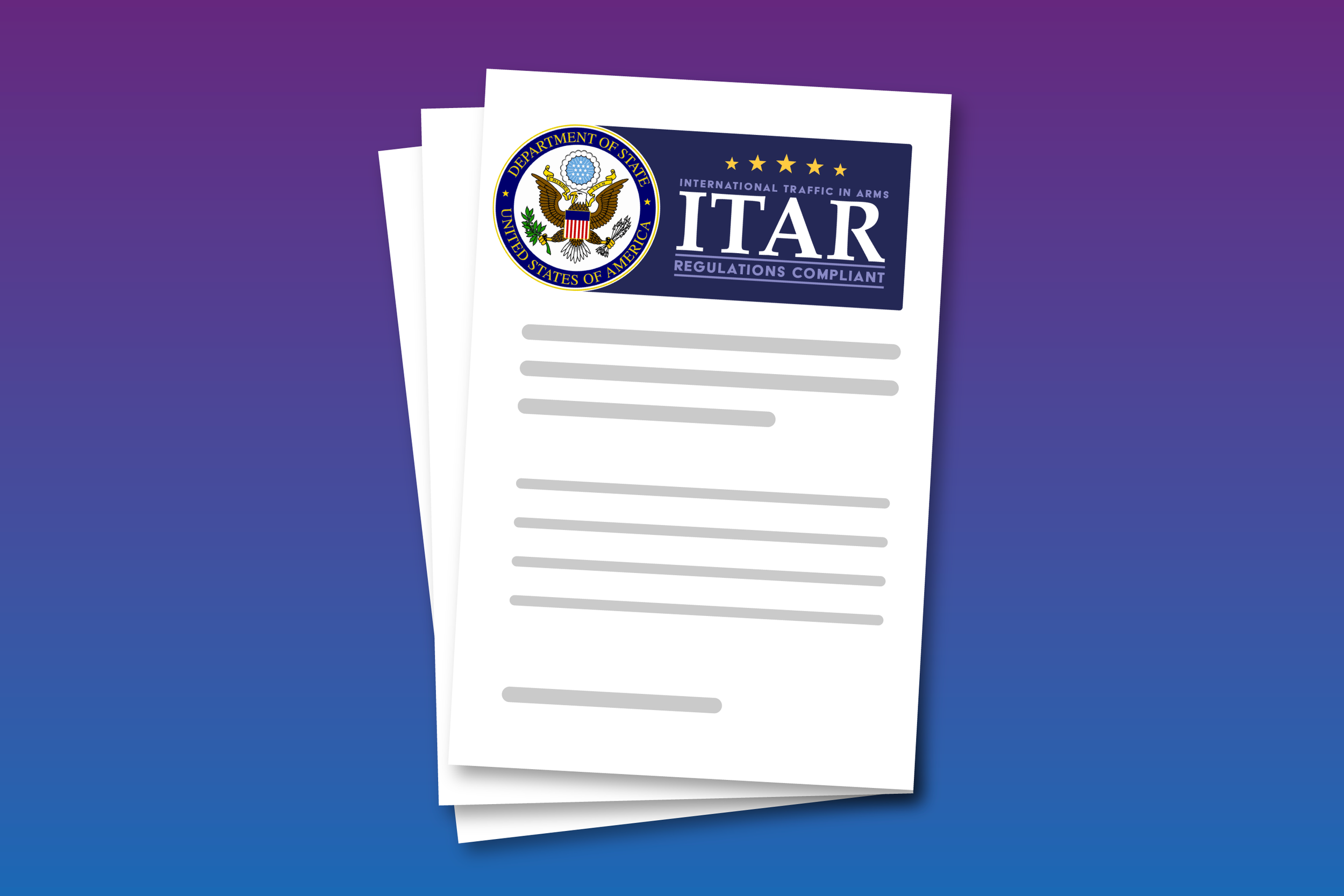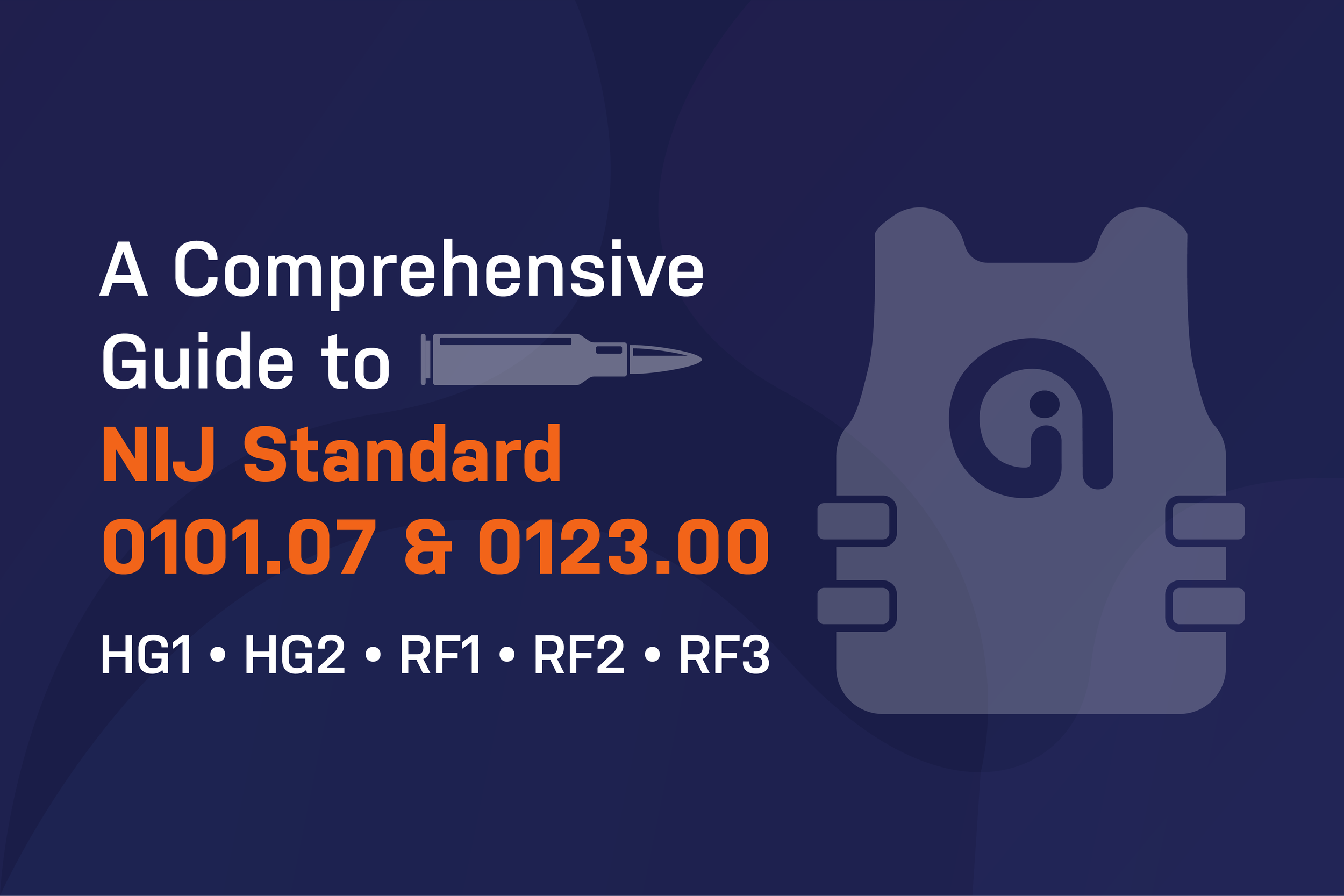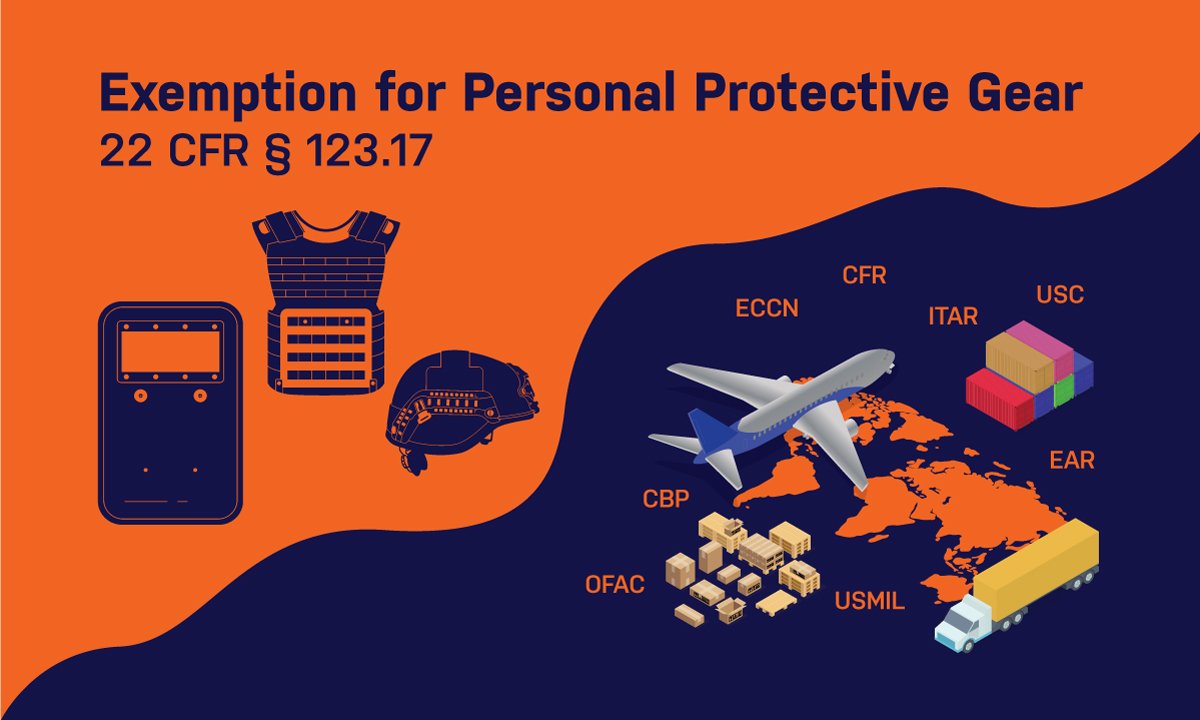From Borders to Battlefields: The Importance of International Trade Compliance in Defense and Public Safety
For companies that engage in international trade, staying compliant with regulations and requirements can be a daunting task. But the consequences of non-compliance can be severe, including financial penalties and reputational damage.
In this article, we'll explore the importance of international trade compliance and what companies can do to ensure they stay on the right side of the law.
International Trade Compliance: What It Is and Why It Matters
In an ever-evolving global economy, it’s more important than ever for companies that trade internationally to understand and abide by all applicable regulations and compliance requirements. Though daunting, organizations that conduct operations across borders must stay informed of the many complex rules that govern international trade compliance, so they remain competitive and legally compliant. In this article, we'll explore exactly what international trade compliance is and why it matters to all companies that engage in cross-border commerce, particularly those in the public safety and defense industrial base sectors.
What Exactly is International Trade Compliance?
Simply put, international trade compliance refers to the practice of adhering to all governmental laws, regulations, and standards at both national and international levels that affect global trading activities. It applies to the movement of goods across borders, as well as to export control regulations that limit the transfer of technology between countries. These rules are put in place by countries to regulate the flow of goods in various markets around the world, and companies must remain compliant even as these regulations continually change in response to new national policies. Any companies that flout these trade regulations – either intentionally or out of ignorance – face potentially severe non-compliance penalties and fines.
The Role of Key Government Agencies in International Trade Compliance
As companies engage in international trade, they need to be aware of the many complex regulations and compliance requirements that they must follow to remain competitive and legally compliant. This article explores the agencies that play a vital role in international trade compliance, particularly for companies in the public safety and defense sectors.
These agencies include the Bureau of Industry and Security (BIS), Customs Border and Protection (CBP), the Office of Foreign Assets and Controls (OFAC), the Defense Security Cooperation Agency (DSCA), the Transportation Security Administration (TSA), the U.S. Department of Commerce (DOC), and the U.S. Department of State. Understanding these agencies and their regulations is crucial for companies to navigate the ever-evolving landscape of international trade.
Bureau of Industry and Security (BIS) – The purpose of BIS is to “advance U.S. national security, foreign policy, and economic objectives by ensuring an effective export control and treaty compliance system.” Notably, this entity enforces Export Administration Regulations (EAR), a law that regulates the exports of many commercial items, including technology and software. This is particularly noteworthy for companies in the public safety and defense spaces because these regulated goods include those that are “dual-use,” which means that they can be used both militarily and commercially.
Customs Border and Protection (CBP) – CBP is “charged with keeping terrorists and their weapons out of the U.S. while facilitating lawful international travel and trade.” One of the largest law enforcement organizations in the world, CBP ensures compliant trade, secures the American border, counters terrorism, combats transnational crime, and oversees lawful travel.
Office of Foreign Assets and Controls (OFAC) – A U.S. Treasury agency, OFAC “administers and enforces economic and trade sanctions in support of U.S. national security and foreign policy objectives.” It publishes lists of individuals, groups, and entities who are suspected terrorists, narcotics traffickers, and others who act nefariously on behalf of a targeted country or regime.
Defense Security Cooperation Agency (DSCA) – The DSCA aims to advance and encourage partner nations to support U.S. foreign policy and defense interests. It also oversees defense trade and arms transfers, which include foreign military sales (FMS) and other programs that address the requirements of international partners.
Transportation Security Administration (TSA) – TSA is a government agency that develops policies to protect the U.S. transportation system, including mass transit, highways, railroads, ports, pipelines, buses, and intermodal freight facilities. It primarily focuses on airport security and preventing aircraft hijacking.
U.S. Department of Commerce (DOC) – The DOC’s mission is to “create conditions for economic growth and opportunity for all communities.” One of its main objectives is to promote economic growth and job creation by ensuring fair and reciprocal trade.
U.S. Department of State – Also known as the State Department, this division is responsible for the United States’ foreign policy and relations. It administers the International Traffic in Arms Regulations (ITAR), which control the import and export of defense and military-related technologies listed on the U.S. Munitions List (USML). Defense companies must be ITAR-compliant to ship these kinds of technologies.
What are the Challenges and Benefits of Compliance?
The challenges and benefits of international trade compliance are many. While the regulatory framework is highly complex, compliance helps maintain healthy relationships between nations and protects companies against penalties and fines. However, the constantly evolving trade environment and the rapidly changing regulations and enforcement present challenges for companies to navigate. Compliance teams must balance the burden of meeting trade laws with the expectation of conducting in-depth due diligence as required by government authorities. Nonetheless, companies that implement robust compliance controls can protect their reputation, employees, and customers while increasing the chances of conducting successful business globally.
While companies must abide by in-country trade compliance requirements, the real challenge lies in satisfying all of the international regulations. The framework is highly complex given all the various governing bodies that have a say, even within just one country alone. To further complicate things, these regulations aren’t standardized across trading countries – or even necessarily in agreement with one another – and the global trade environment can be incredibly volatile.
Furthermore, trade regulations and their enforcement can change rapidly and with little warning. As foreign affairs shift and fluctuate, nations change their policies, impacting the many regulations and requirements that companies must either comply with or suffer monetary and other consequences. Hence, it’s increasingly difficult for companies to navigate all these restrictions without error in a constantly evolving climate.
Internally, trade compliance teams often encounter challenges too. Frequently pressured to increase the speed of shipping while also minimizing any impacts on interconnected global supply chains, these teams must balance the burden of meeting numerous trade laws with the expectation of conducting in-depth due diligence as required by government authorities.
On the plus side, the regulations that governing bodies in different nations uphold and enforce helps maintain a healthy relationship between nations, in theory protecting them against exploitation and any violation of laws in the field of global trade. In addition, companies that implement robust compliance controls protect their corporate reputation and employees, minimize their exposure to penalties and fines, and increase customer satisfaction by avoiding shipping delays. Proper international trade compliance is thus essential for companies to reap the benefits of conducting successful business in different parts of the world.
Why Does International Trade Compliance Matter?
To sum everything up, companies that import and export goods and technologies in all domains, particularly defense industrial base and public safety, must be able to predict and quickly adapt to new international trade regulations. Without this capability, they are at a competitive disadvantage and will likely incur severe penalties.
Even more than that, international trade compliance matters because it helps mitigate risk, increases the odds that a company will meet the demands of its suppliers and customers, and supports sustainability and long-term growth. Compliance also often involves adapting to new financial tools, (e.g., stablecoins), which can simplify cross-border payments.
Finally, with a strong trade compliance strategy in place, an organization will ensure that its products move swiftly across borders and into the hands of its customers.
6 Key Takeaways From This Article
International trade compliance refers to adhering to laws, regulations, and standards that govern global trading activities.
Compliance is essential for companies that engage in cross-border commerce, particularly those in the public safety and defense industrial base sectors.
Key agencies involved in international trade compliance include the BIS, CBP, OFAC, DSCA, TSA, DOC, and State Department.
The challenges of compliance include the complexity of the regulatory framework, the lack of standardization across trading countries, and the rapid and unpredictable changes in trade regulations and enforcement.
The benefits of compliance include maintaining a healthy relationship between nations, protecting against exploitation, safeguarding corporate reputation and employees, minimizing exposure to penalties and fines, increasing customer satisfaction, and supporting sustainability and long-term growth.
A strong trade compliance strategy can help companies meet the demands of their suppliers and customers, mitigate risk, and ensure their products move swiftly across borders.
As a compliance advisor, IntelAlytic offers a comprehensive range of services to help clients navigate the complexities of international trade compliance. Our team of experts can help identify risks, develop, and implement effective compliance programs, and monitor compliance with all relevant regulations. By leveraging the latest technology and tools, as well as a deep understanding of industry-specific requirements, we can provide customized solutions that meet the unique needs of each client. Whether you are a small business or a large enterprise, IntelAlytic is dedicated to ensuring that you stay compliant, competitive, and successful in a constantly evolving global marketplace.
Interested in working with IntelAlytic?
Explore IntelAlytic Services
Follow us on LinkedIn for daily tips and resources













